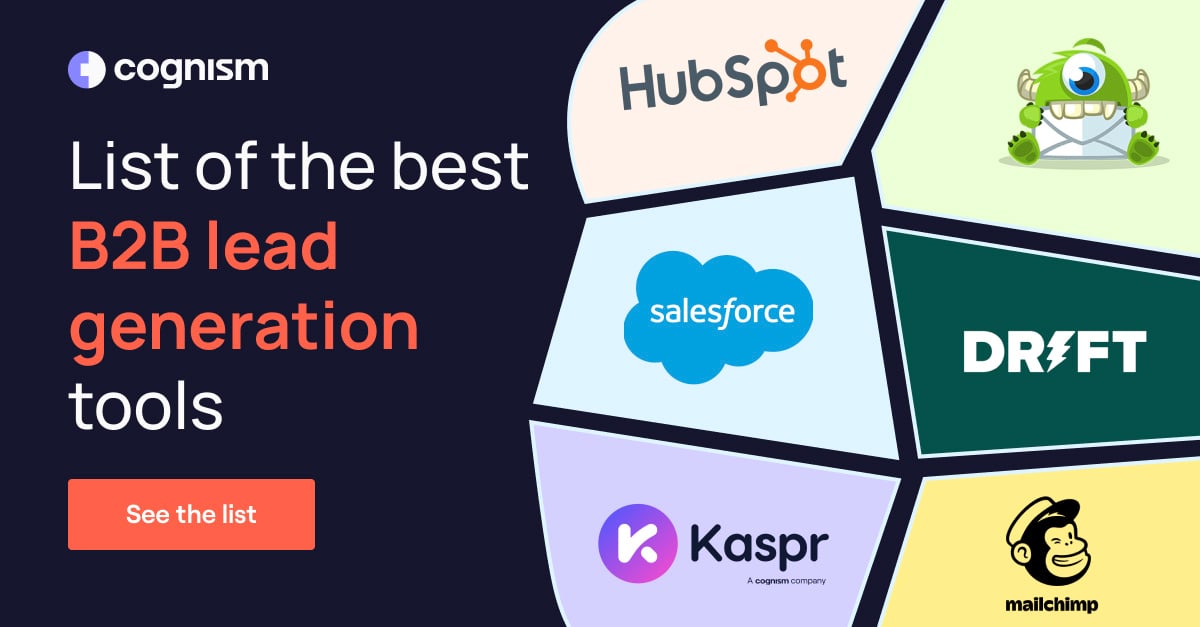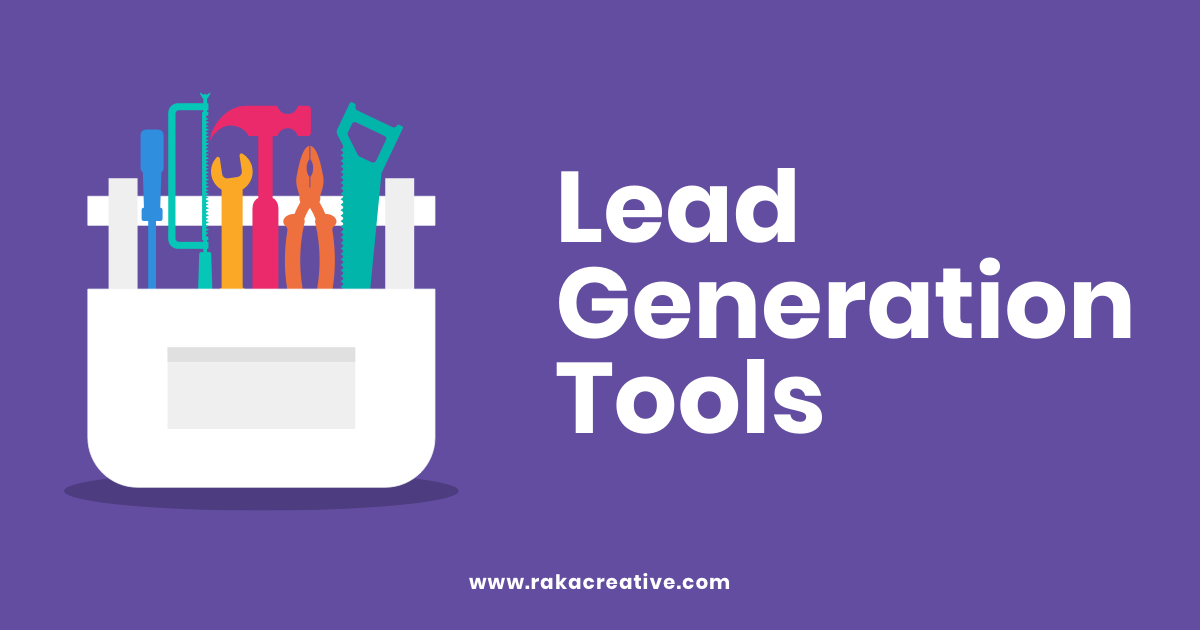Ever wonder how businesses seem to magically attract new customers? The secret often lies in lead generation tools.
If you’re looking to grow your customer base or boost your sales, these tools could be your best friend. But what exactly are lead generation tools, and why should you care? Imagine having a magnet that draws in potential customers who are already interested in what you offer.
That’s the power of these tools. They’re designed to capture the attention of your target audience and convert them into loyal customers. As you dive deeper into this article, you’ll discover how these tools work, why they’re essential for your business, and how you can leverage them to stay ahead of the competition. Ready to unlock the secret to attracting more customers? Keep reading to find out how lead generation tools can transform your business.

Credit: sapiengraph.com
Understanding Lead Generation
Lead generation is the process of attracting potential customers. Businesses use it to nurture interest and convert prospects into buyers. It’s essential for building a customer base and growing sales. A good lead generation strategy can boost engagement and create lasting relationships.
This strategy involves using various tools and techniques. These tools help identify, attract, and engage potential leads. By understanding how lead generation works, businesses can target the right audience effectively.
What Is Lead Generation?
Lead generation is about finding potential customers. It’s the first step in turning interest into sales. Companies use it to identify people interested in their products. This process helps build a list of potential buyers.
Different methods help generate leads. These include online forms, social media, and email campaigns. Each method has its own benefits and targets different audiences.
Why Is Lead Generation Important?
Lead generation is crucial for business growth. It helps companies find new customers. This process creates opportunities for sales and revenue. Without lead generation, businesses may struggle to attract new buyers.
It also helps in understanding customer needs. By collecting data, businesses can improve their products. This ensures they meet customer expectations and increase satisfaction.
How Does Lead Generation Work?
Lead generation starts by attracting interest. This can be through content, promotions, or social media. Once interest is captured, businesses collect contact information. This information is used for further engagement.
Engagement involves nurturing the relationship. Companies send personalized messages and offers. This keeps potential customers interested in the brand. Eventually, the goal is to convert leads into loyal customers.
Types Of Lead Generation Tools
Lead generation tools help businesses find potential customers. They include software for email marketing, social media campaigns, and SEO analytics. These tools make it easier to attract and engage new leads.
Generating leads is crucial for any business looking to grow. But with the overwhelming number of lead generation tools available, how do you choose the right one? Understanding the different types of lead generation tools can help you make an informed decision. These tools fall into three main categories: inbound, outbound, and automated. Each type offers unique benefits to attract, engage, and convert potential customers.
Inbound Tools
Inbound lead generation tools focus on attracting potential customers by providing valuable content and experiences. Think of them as magnets that pull interested individuals toward your brand. Blogs, SEO, and social media are classic examples.
Have you ever stumbled upon a blog post that answered a question you had? That’s inbound marketing at work. By providing valuable content, you build trust with your audience, making them more likely to engage with your brand. If you’re not leveraging inbound tools, you might be missing out on a goldmine of prospects who are actively seeking solutions that your business offers.
Outbound Tools
Outbound lead generation tools involve reaching out to potential customers directly. This approach is more about casting a wide net to see what you can catch. Email campaigns, cold calling, and paid advertising are popular outbound methods.
Remember the last time you received an email introducing you to a new product or service? That was an outbound effort to grab your attention. While sometimes seen as intrusive, these tools can be highly effective if targeted correctly. The key is to personalize your approach so that it doesn’t feel like just another generic pitch. Are you targeting the right audience with your outbound strategies?
Automated Tools
Automated lead generation tools simplify the entire process by using technology to handle repetitive tasks. These tools save you time and effort, allowing you to focus on closing deals. CRM systems, chatbots, and marketing automation platforms are leading examples.
Imagine a chatbot on your website engaging visitors 24/7, answering their queries, and capturing their contact information. This is automation at its best. These tools not only increase efficiency but also help in nurturing leads by delivering personalized content at the right time. Could automation be the game-changer in your lead generation strategy?
Choosing the right mix of lead generation tools can significantly impact your business’s growth. By understanding and leveraging these tools, you can build a robust pipeline of potential customers. Which type of tool will you explore next to boost your lead generation efforts?
Key Features To Look For
Lead generation tools are essential for businesses looking to grow their customer base and increase sales. However, with so many options available, how do you choose the right one? It boils down to understanding the key features that make these tools effective. Let’s dive into what you should be on the lookout for.
User-friendly Interface
Imagine trying to navigate a complex maze without a map. That’s what a lead generation tool with a complicated interface feels like. A user-friendly interface ensures you can easily access all features without a steep learning curve.
Think of how you use your favorite app without struggling to find functions. A tool that is intuitive saves you time, reduces frustration, and increases productivity.
Integration Capabilities
In today’s digital world, being able to connect different systems is crucial. Look for tools that integrate seamlessly with your existing software like CRM systems, email marketing platforms, and social media channels.
This integration allows you to streamline processes and gather data efficiently. Consider how much easier life would be if your lead generation tool could automatically update your CRM with new leads.
Analytics And Reporting
Data-driven decisions are the backbone of successful marketing strategies. Robust analytics and reporting features help you track performance and understand what works and what doesn’t.
Imagine having a clear view of your lead conversion rates or the ability to identify trends over time. This information empowers you to tweak strategies and optimize results. Are you leveraging analytics to their full potential?
Choosing the right lead generation tool can significantly impact your business growth. Keep these key features in mind and ensure your tool aligns with your goals. Ready to make an informed decision? The power is in your hands!

Credit: www.cognism.com
Popular Lead Generation Tools
Lead generation tools help businesses find potential customers by collecting contact information. These tools automate the process of gathering leads. Popular options offer features like email collection, landing pages, and analytics.
Lead generation tools are essential for businesses looking to expand their customer base and boost sales. With the right tools, you can capture potential customers’ interest and transform it into tangible leads. But which tools truly stand out in the crowded marketplace? Let’s dive into some of the most popular options available today.
Crm Platforms
Customer Relationship Management (CRM) platforms are crucial for organizing and managing customer interactions. They help you keep track of your leads, ensuring no potential customer falls through the cracks. Tools like Salesforce and HubSpot offer features that streamline communication and automate follow-ups.
A CRM system can be a game-changer for small businesses. It centralizes customer information and provides insights into buying behaviors. This means you can tailor your marketing strategies to individual customer needs.
Think about your current lead management process. Is it efficient? If not, a CRM might be the missing piece you need.
Email Marketing Software
Email marketing remains a powerful tool for engaging with potential leads. Software like Mailchimp and Constant Contact allows you to create personalized campaigns with ease. These platforms provide templates and analytics to help refine your approach.
Effective email marketing can nurture leads and convert them into loyal customers. The key is to send relevant content that resonates with your audience.
Have you ever received an email that felt like it was written just for you? That’s the kind of connection you should aim to create with your leads.
Social Media Tools
Social media is more than just a platform for sharing photos; it’s a lead generation powerhouse. Tools like Hootsuite and Buffer help you manage your social media presence and engage with potential customers. They allow you to schedule posts, track engagement, and analyze results.
Being active on social media helps build brand awareness and trust. Engaging content encourages users to interact, turning casual browsers into interested leads.
Consider how often you engage with brands on social media. Are you leveraging these platforms to their full potential in your own business?
By exploring these tools, you can enhance your lead generation strategy. Each tool offers unique benefits, and the right combination can significantly impact your business growth. Which tool will you try first?
Benefits Of Using Lead Generation Tools
Lead generation tools have become essential in today’s digital marketing landscape. They simplify how businesses attract and convert prospects into valuable leads. But why are they so vital? Let’s dive into the benefits of using lead generation tools and see how they can transform your marketing strategy.
Increased Efficiency
Lead generation tools automate tedious tasks like data collection and analysis. This means you spend less time on manual processes and more time on strategy. Imagine freeing up hours each week to focus on what truly matters—building relationships and closing deals.
These tools can also handle multiple tasks simultaneously. You can collect leads, analyze their behavior, and track their journey in real-time. Think about how much faster your team can work when they’re supported by technology that does the heavy lifting.
Improved Targeting
One of the most significant advantages is the ability to target the right audience. Lead generation tools use data to segment your prospects based on demographics, behavior, and preferences. This ensures you’re reaching out to people who are genuinely interested in what you offer.
Picture this: sending personalized messages to individuals who are most likely to engage with your brand. This kind of precision reduces waste and maximizes your marketing budget. Are you making the most of your data to connect with the right people?
Enhanced Conversion Rates
With better targeting comes higher conversion rates. When your messages resonate with your audience, they’re more likely to take action. Lead generation tools refine your approach, helping you craft compelling calls-to-action that speak directly to your prospects’ needs.
These tools also provide insights into what works and what doesn’t. You can adjust your strategies on the fly, optimizing them for better results. How much more effective could your campaigns be if you had this level of insight and adaptability?
In short, lead generation tools are not just about collecting leads—they’re about transforming how you engage, convert, and retain them. Are you ready to harness their full potential?

Credit: www.rakacreative.com
Selecting The Right Tool For Your Business
Selecting the right lead generation tool can transform your business’s growth. Each tool offers unique features that cater to different needs. Understanding what your business requires will guide your choice. Here, we explore key factors to consider. Make sure your chosen tool aligns with your goals and resources.
Assessing Business Needs
Identify your primary objectives. Are you aiming for more leads or better quality leads? Evaluate your current strategies. Determine where improvements are needed. Consider your target audience. Choose a tool that effectively engages them. Analyze your existing resources. Ensure compatibility with new tools. This approach helps in narrowing down options.
Budget Considerations
Set a clear budget for lead generation tools. Remember, costs can vary widely. Consider both upfront and ongoing expenses. Assess potential return on investment. Does the tool offer a free trial? Use it to evaluate its value. Weigh the cost against the expected benefits. This ensures financial feasibility.
Scalability And Flexibility
Think about your business’s future growth. Can the tool scale with your business? A scalable tool adapts to increasing demands. Check if the tool offers flexible features. Can it integrate with other systems? This flexibility is crucial for evolving businesses. It allows for seamless updates and expansions.
Implementing Lead Generation Strategies
Lead generation tools help businesses attract potential customers. These tools collect information about interested people. Using this data, companies can target their audience better and improve sales.
Implementing lead generation strategies is crucial for businesses looking to grow their customer base. It’s not just about gathering leads; it’s about attracting the right ones and nurturing them effectively. Let’s dive into how you can create, track, and adjust your lead generation efforts for maximum impact.
Creating Effective Campaigns
Crafting a successful lead generation campaign starts with understanding your audience. Who are they, and what problems are they looking to solve? Tailor your content and offers to address these needs directly.
Use clear and compelling calls to action. Encourage potential leads to take the next step, whether it’s downloading a free guide, signing up for a webinar, or requesting a demo.
Consider using A/B testing to refine your approach. Small tweaks in headlines or button colors can significantly impact your conversion rates. Have you ever noticed how a minor change can make a big difference in your campaign’s success?
Tracking And Measuring Success
Once your campaign is up and running, the next step is tracking its performance. Tools like Google Analytics or CRM systems can help you monitor key metrics. Are you keeping an eye on conversion rates, click-through rates, and lead quality?
Regularly review your data to see what’s working and what isn’t. Look for patterns and trends that might help you make informed decisions. Sometimes, what you think is a minor detail can reveal a lot about your audience’s preferences.
Don’t forget to set clear goals from the start. Knowing what success looks like will help you measure progress accurately and make necessary adjustments.
Adjusting Tactics For Better Results
No campaign is perfect from the get-go. Be prepared to adjust your tactics based on the data you collect. What changes can you make to improve your results?
If a particular strategy isn’t yielding the desired outcomes, don’t hesitate to try something new. Maybe it’s time to explore different channels, such as social media or email marketing.
Consider soliciting feedback from your audience. They might offer insights you hadn’t considered. Have you ever asked your leads what they think of your campaigns?
Remember, the world of lead generation is dynamic. Stay flexible and open to change, and you’ll be better equipped to achieve your business goals.
Frequently Asked Questions
What Are Lead Generation Tools?
Lead generation tools help businesses attract potential customers. They automate the process of identifying leads. These tools can include software, apps, and online platforms. They streamline marketing efforts and enhance reach. Effective use of these tools can boost conversion rates.
How Do Lead Generation Tools Work?
Lead generation tools gather data from various sources. They analyze user behavior and preferences. This helps businesses target the right audience. Tools automate outreach, making the process efficient. They track engagement, providing insights for strategy improvement.
Why Are Lead Generation Tools Important?
Lead generation tools save time and resources. They help businesses focus on high-potential leads. By automating processes, they reduce human errors. These tools enhance marketing efficiency. They offer valuable insights for strategic planning.
Can Lead Generation Tools Improve Sales?
Yes, lead generation tools can boost sales significantly. They identify and target interested prospects. Tools enable personalized communication with leads. By nurturing relationships, they convert leads into customers. This streamlined approach increases sales opportunities.
Conclusion
Lead generation tools simplify finding potential customers. They save time and increase efficiency. Businesses can target the right audience. This boosts sales opportunities. Understanding these tools is crucial for growth. They help streamline marketing efforts. Easy to use and effective, they make a big impact.
Investing in the right tool can transform your approach. Make sure to choose what fits your needs. With the right tool, your business can thrive. Lead generation tools are a smart choice for any business. Start exploring options today. Take the next step toward success.

